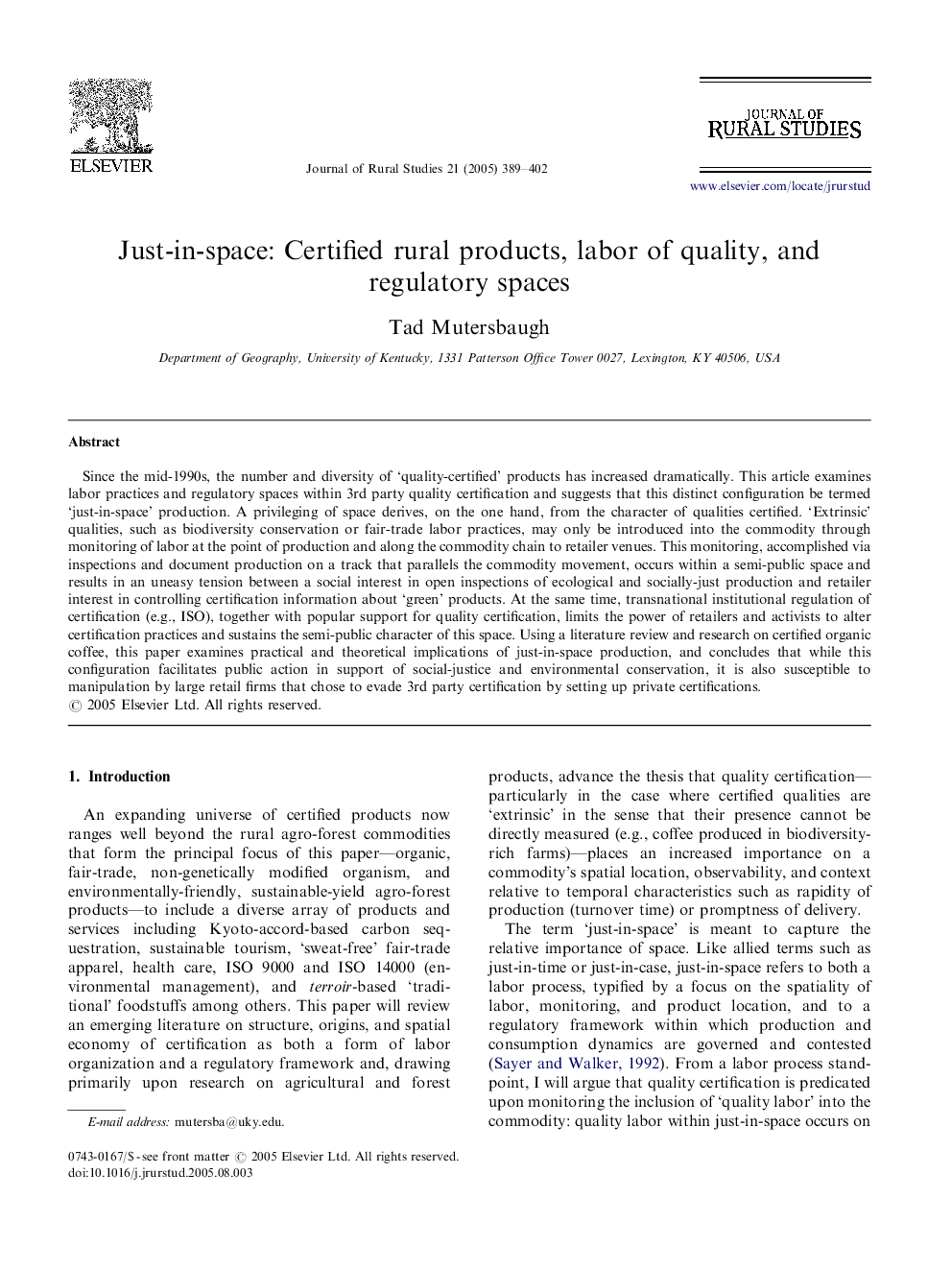| Article ID | Journal | Published Year | Pages | File Type |
|---|---|---|---|---|
| 10251454 | Journal of Rural Studies | 2005 | 14 Pages |
Abstract
Since the mid-1990s, the number and diversity of 'quality-certified' products has increased dramatically. This article examines labor practices and regulatory spaces within 3rd party quality certification and suggests that this distinct configuration be termed 'just-in-space' production. A privileging of space derives, on the one hand, from the character of qualities certified. 'Extrinsic' qualities, such as biodiversity conservation or fair-trade labor practices, may only be introduced into the commodity through monitoring of labor at the point of production and along the commodity chain to retailer venues. This monitoring, accomplished via inspections and document production on a track that parallels the commodity movement, occurs within a semi-public space and results in an uneasy tension between a social interest in open inspections of ecological and socially-just production and retailer interest in controlling certification information about 'green' products. At the same time, transnational institutional regulation of certification (e.g., ISO), together with popular support for quality certification, limits the power of retailers and activists to alter certification practices and sustains the semi-public character of this space. Using a literature review and research on certified organic coffee, this paper examines practical and theoretical implications of just-in-space production, and concludes that while this configuration facilitates public action in support of social-justice and environmental conservation, it is also susceptible to manipulation by large retail firms that chose to evade 3rd party certification by setting up private certifications.
Related Topics
Life Sciences
Agricultural and Biological Sciences
Forestry
Authors
Tad Mutersbaugh,
